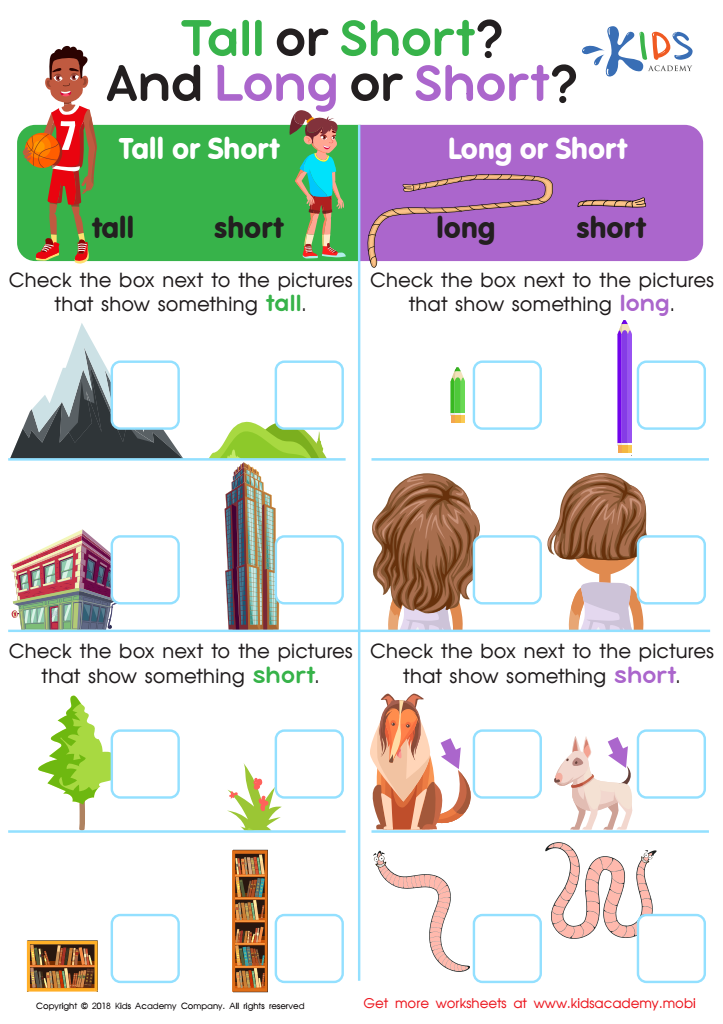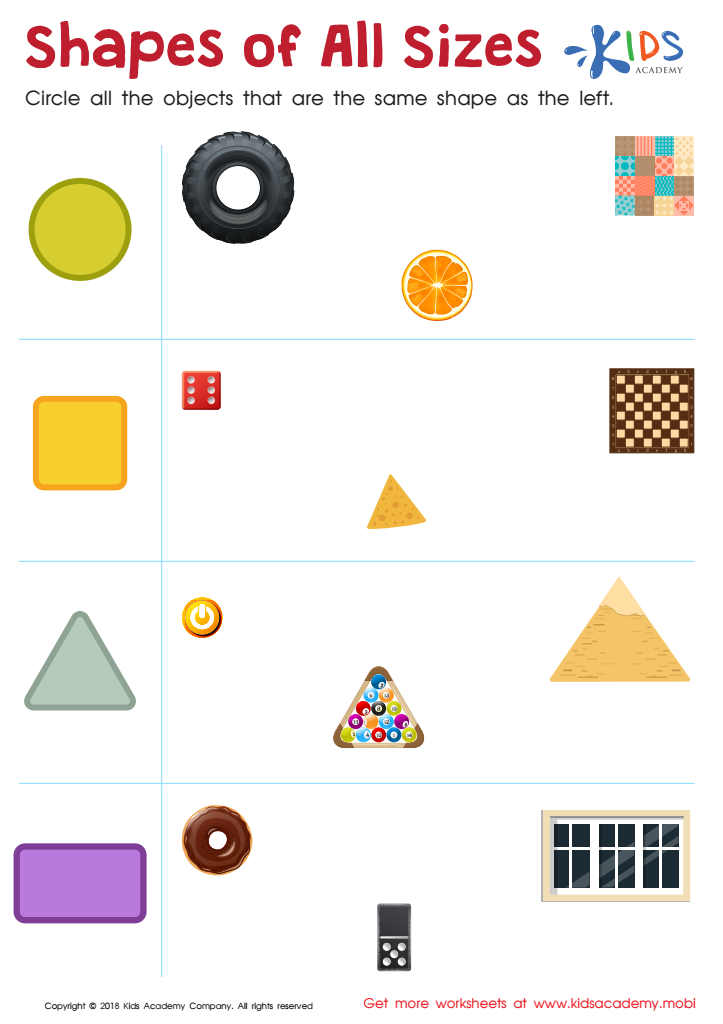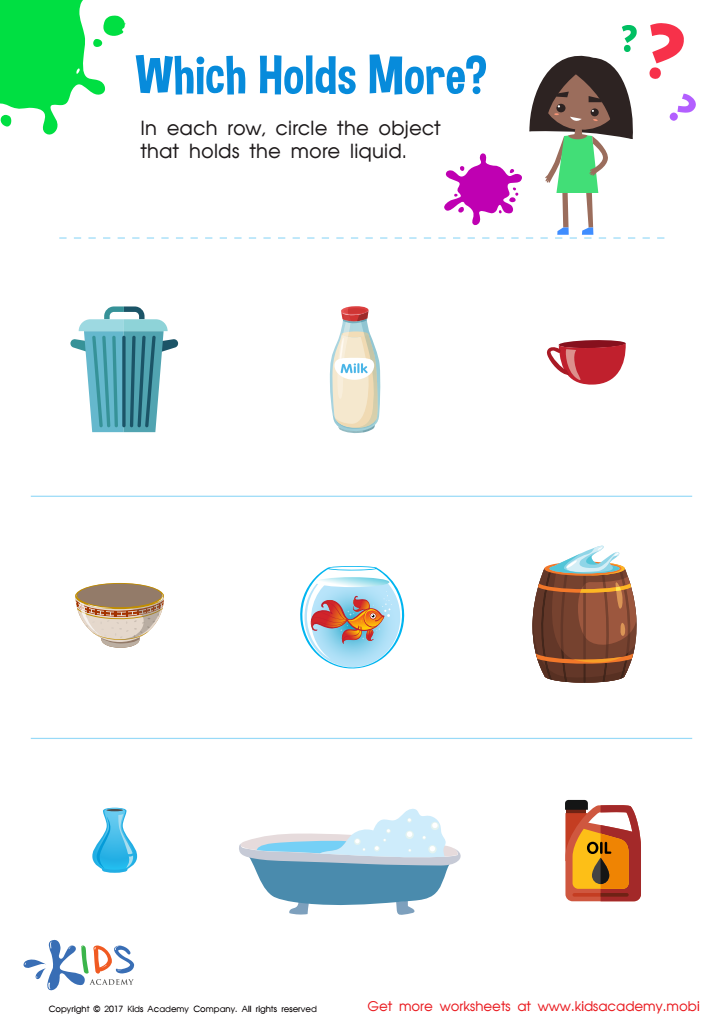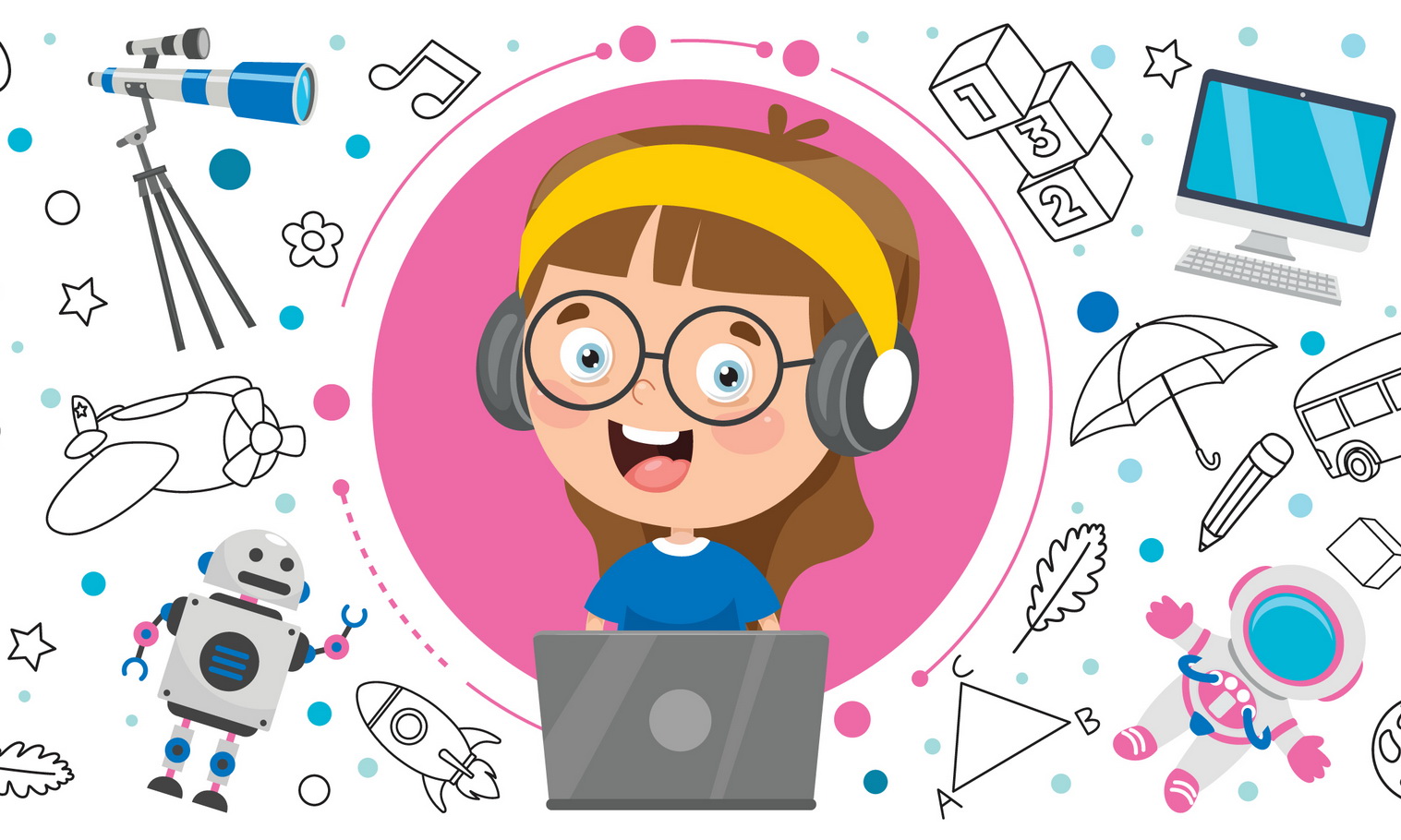Basic measurement concepts Normal Worksheets for 4-Year-Olds
3 filtered results
-
From - To
Introduce your 4-year-old to the world of measurement with our engaging Basic Measurement Concepts Normal Worksheets. Specifically designed for young learners, these worksheets help children grasp foundational measurement skills through fun and interactive activities. They will learn concepts like size comparison, length, height, and weight using everyday objects. Our printable worksheets use colorful graphics and simple exercises to make learning intuitive and enjoyable. Perfect for parents and teachers, these resources not only enhance measurement understanding but also boost confidence and critical thinking. Start exploring the basics of measurement today with materials tailored for curious 4-year-olds.


Tall or Short and Long or Short? Worksheet


Shapes of All Sizes Worksheet


Which Holds More: Capacity Worksheet
Understanding basic measurement concepts is crucial for 4-year-olds as it lays the foundation for various cognitive and practical skills. Parents and teachers should care about these concepts for several reasons.
First, grasping measurement concepts such as size, length, weight, and volume helps children develop critical thinking abilities. Comparing objects requires observation and analytical skills, which is beneficial for problem-solving and logical reasoning.
Second, early exposure to measurement vocabulary (like "big/small," "long/short," "heavy/light," etc.) enhances language development. It enriches a child’s descriptive language, allowing them to express themselves more clearly and understand others better.
Third, foundational measurement skills are closely linked with early math learning. They support an understanding of numbers, counting, and even basic geometry. Tasks like measuring ingredients during cooking or distributing toys equally introduce basic arithmetic principles.
Moreover, these skills are essential for everyday life. They prepare children for practical activities such as dressing themselves (“Which shoe is bigger? Does it fit?”) or setting the table (“Is this bottle full or empty?”).
Lastly, learning to measure and compare fosters curiosity and exploration. Experiencing measurement hands-on—like using rulers, scales, or cups—can spark an interest in science and the world around them.
Therefore, by fostering these skills early on, parents and teachers can help children build a strong foundational understanding that will benefit their academic and life skills in the long run.

 Assign to the classroom
Assign to the classroom












